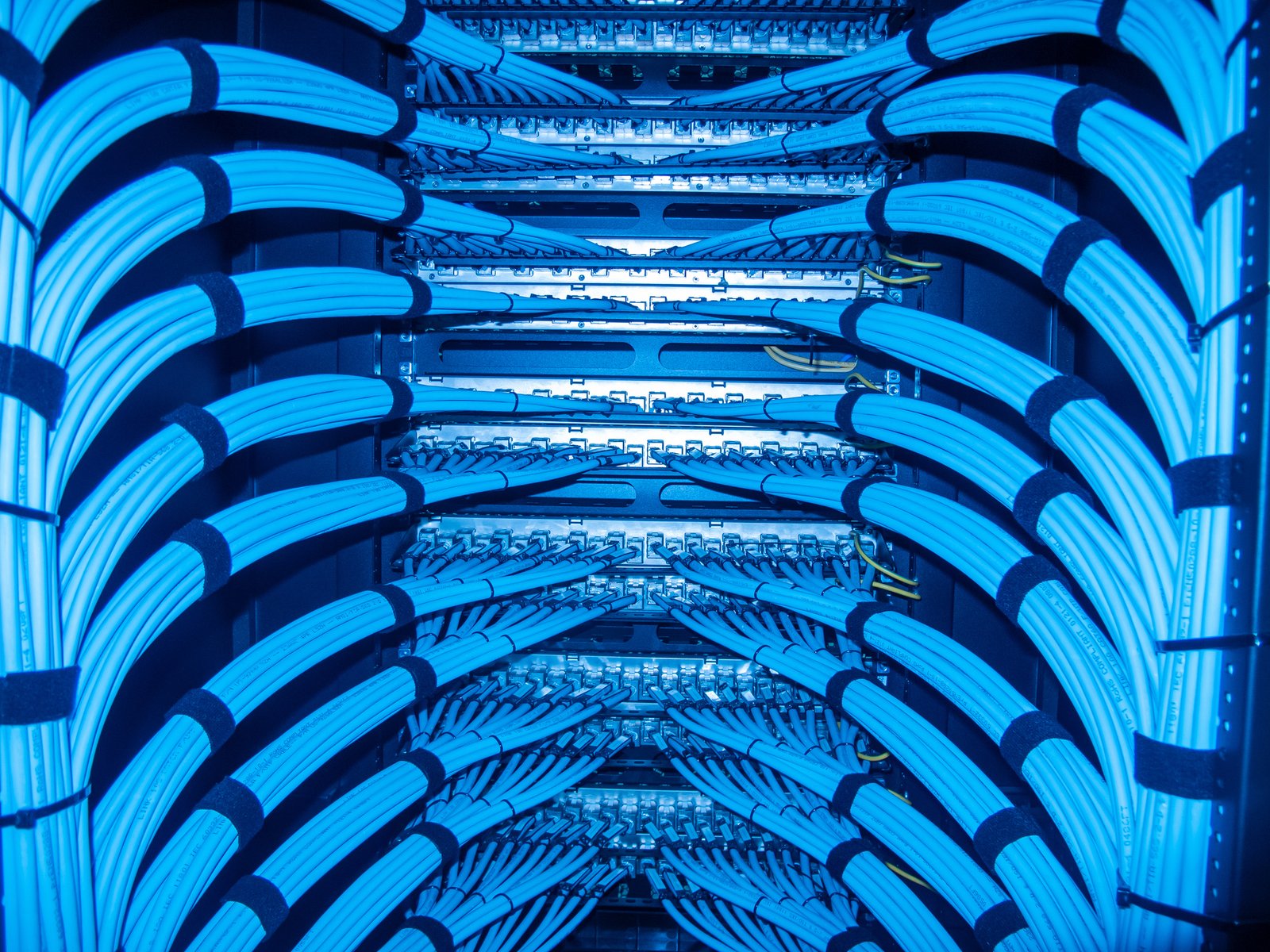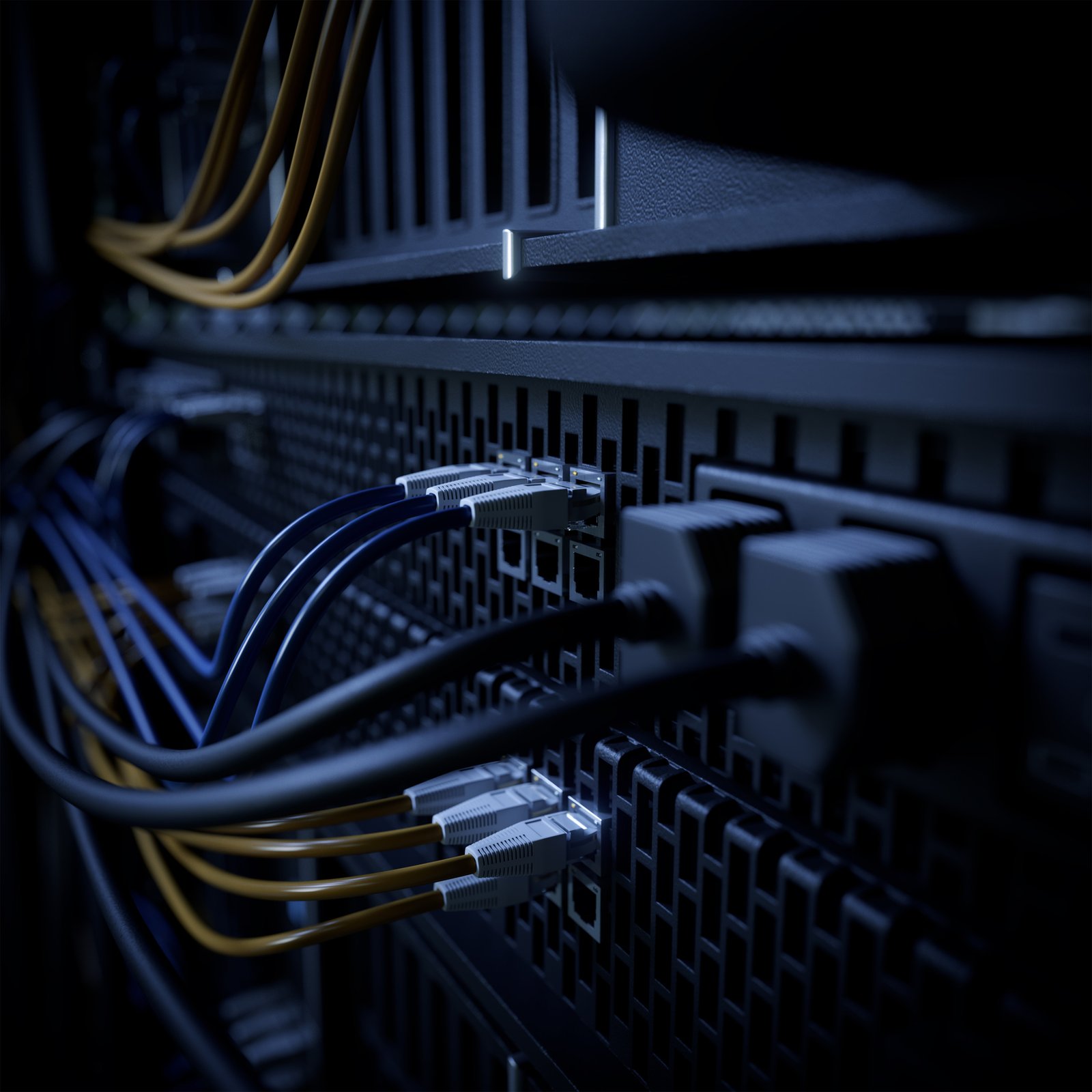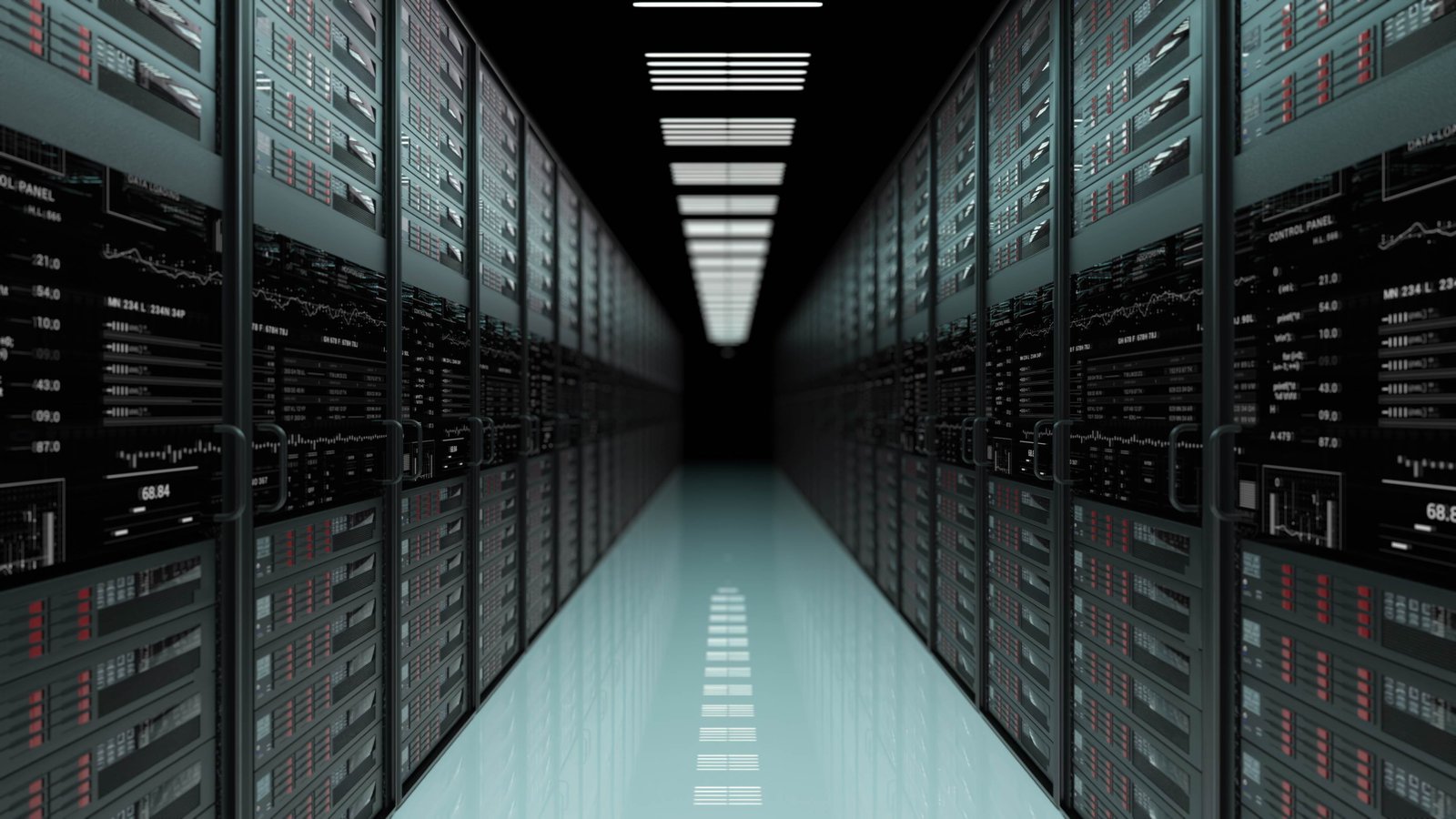Our digital-first world is powered through massive data center hubs with incredible computing power.
Data center hubs are geographic areas with a high concentration of data centers, which are facilities that house computing infrastructure for storing, processing, and distributing large amounts of data.
These hubs have become crucial components of the digital economy, supporting the growth of cloud computing, e-commerce, emerging technology such as artificial intelligence (AI), and other data-intensive industries.
History of Data Center Hubs
The development of data center hubs in the United States can be traced back to the early days of the internet.
As the demand for online services and data storage grew, companies began to build large-scale facilities to house their computing infrastructure. These facilities were often located in areas with access to reliable power, high-speed internet connectivity, and a skilled workforce.
Over time, certain regions emerged as prominent data center hubs due to their strategic locations, favorable business climates, and robust infrastructure.
These hubs attracted major technology companies, cloud service providers, and enterprises looking to establish a presence near key markets and customers.
Characteristics of Data Center Hubs
Data center hubs share several common features that make them attractive locations for data center providers and their customers. These characteristics include:
- Robust Infrastructure: Data center hubs typically have well-developed infrastructure, including reliable power supply, extensive fiber connectivity, and advanced cooling systems. This infrastructure is essential for ensuring the uninterrupted operation of data centers and the delivery of high-quality services to customers.
- Strategic Location: Data center hubs are often located in areas with proximity to major population centers, financial markets, or key industries. This proximity allows for low-latency connectivity and enables data center providers to serve their customers more effectively.
- Favorable Business Climate: Data center hubs are typically located in regions with business-friendly policies, such as tax incentives, streamlined permitting processes, and supportive local governments. These policies help attract data center providers and foster the growth of the industry.
- Access to Skilled Workforce: Data center hubs often have access to a skilled workforce, including professionals with expertise in IT, engineering, and facilities management. This talent pool is critical for the operation and maintenance of data centers and the delivery of high-quality services to customers.
- Low Risk of Natural Disasters: Data center hubs are often located in areas with a low risk of natural disasters, such as earthquakes, hurricanes, and tornadoes. This helps ensure the reliability and continuity of data center operations, even in the face of adverse events.
- Renewable Energy Resources: Many data center hubs have access to renewable energy resources, such as hydroelectric, solar, or wind power. This allows data center providers to reduce their carbon footprint and meet the growing demand for sustainable computing solutions.
These common characteristics make data center hubs attractive locations for businesses looking to host their computing infrastructure and take advantage of the benefits of colocation, cloud computing, and other data center services.
Data Center Real Estate Market
The data center real estate market in these hubs is characterized by low vacancy rates and rising rents, driven by the increasing demand for data storage and processing.
“The hottest real estate markets right now don’t have views of Central Park or beach access. They feature (mostly) massive, unassuming buildings that slurp up more energy than your parents think you waste by leaving lights on,” wrote Matty Merritt in Morning Brew. “Data center vacancy rates were as low as 3.7 percent in 2023, even as the supply in primary markets grew by 26 percent compared to 2022, according to CBRE.”
As more businesses migrate to the cloud and adopt digital technologies, the need for data center space continues to grow.
This has led to a highly competitive market, with providers scrambling to secure suitable sites and expand their facilities to meet customer needs.
Data Center Hubs Face Pressure to Expand
With the advent of the AI revolution, Internet of Things (IoT), Augmented Reality (AR), 5G networks, and other data-intensive technologies, there is immense pressure on data center hubs to expand and keep up with the growing demands for computing power and storage.
These emerging technologies require vast amounts of data processing and low-latency connectivity, forcing data center providers to invest in new facilities, upgrade existing infrastructure, and explore innovative solutions such as edge computing and modular data centers.
GlobeST.com says that U.S. data center demand will double by 2030 with the industry growing to 35-gigawatt capacity to meet the power needs of AI.
Top 10 Data Center Hubs in the U.S.
It’s a good bet that a lot of U.S. data center growth will happen in one of the top 10 data center hubs:
- Northern Virginia (Data Center Alley)” Northern Virginia, also known as "Data Center Alley," is the largest data center hub in the United States and one of the most significant in the world. The region's proximity to Washington D.C., abundant fiber connectivity, and favorable tax incentives have attracted major cloud providers like Amazon Web Services, Microsoft Azure, and Google Cloud Platform. The area is home to over 100 data centers, with a total capacity exceeding 1 gigawatt.
- Dallas-Fort Worth: The Dallas-Fort Worth metroplex has emerged as a major data center hub due to its central location, reliable power grid, and business-friendly environment. The region's low risk of natural disasters and robust fiber network have attracted companies such as Facebook, IBM, and Equinix. The Dallas-Fort Worth data center market is expected to grow significantly in the coming years, driven by the increasing demand for cloud services and edge computing.
- Silicon Valley: Silicon Valley, the global center of technology innovation, is also a significant data center hub. The region's concentration of tech giants, startups, and venture capital firms has fueled the growth of data centers to support their computing needs. However, the high cost of real estate and power in the area has led some companies to explore alternative locations for their data center operations.
- Chicago: Chicago's central location, reliable power supply, and extensive fiber network have made it a popular choice for data center providers. The city's proximity to major financial exchanges has also attracted companies in the financial services industry. Key players in the Chicago data center market include Digital Realty, Equinix, and CyrusOne.
- Atlanta: Atlanta has emerged as a significant data center hub in the Southeast, thanks to its robust fiber infrastructure, favorable business climate, and access to a skilled workforce. The city's location at the intersection of major fiber routes has made it an attractive location for data center providers. Companies like QTS, Digital Realty, and Cyxtera have a strong presence in the Atlanta market.
- New York Tri-State Area: The New York Tri-State Area, comprising New York, New Jersey, and Pennsylvania, is a major data center hub serving the financial services, healthcare, and media industries. The region's proximity to major population centers and financial markets has driven the growth of data centers. However, the high cost of real estate and power in the area has led some companies to explore alternative locations.
- Phoenix: Phoenix has become an increasingly popular data center hub due to its low risk of natural disasters, affordable power, and business-friendly environment. The city's dry climate and abundant solar power have also made it an attractive location for data center providers looking to reduce their carbon footprint. Companies like Iron Mountain, CyrusOne, and Digital Realty have a strong presence in the Phoenix market.
- Seattle: Seattle's thriving technology industry, led by companies like Amazon and Microsoft, has fueled the growth of data centers in the region. The city's cool climate, abundant hydroelectric power, and proximity to major fiber routes have made it an attractive location for data center providers. The Seattle data center market is expected to grow significantly in the coming years, driven by the increasing demand for cloud services and edge computing.
- Los Angeles: Los Angeles is a significant data center hub serving the media and entertainment industry. The region's concentration of film studios, production companies, and content providers has driven the demand for data storage and processing. The Los Angeles data center market is also characterized by a focus on interconnection, with providers like Equinix and CoreSite offering dense ecosystems of networks and cloud services.
Growing Secondary Data Center Hubs
In addition to the top 10 data center hubs, several secondary markets are emerging as attractive locations for data center providers. These markets offer benefits such as lower costs, access to renewable energy, and proximity to growing population centers. Here are four growing secondary data center hubs:
- Houston: Houston has become an increasingly popular data center location due to its low cost of power, favorable business climate, and access to a skilled workforce. The city's energy infrastructure, which includes a deregulated electricity market and abundant natural gas resources, has attracted data center providers looking to reduce their operating costs. Companies like CyrusOne, Digital Realty, and Stream Data Centers have a strong presence in the Houston market.
- Salt Lake City: Salt Lake City has emerged as a growing data center hub in the Intermountain West region, thanks to its low risk of natural disasters, affordable power, and business-friendly environment. The city's proximity to major fiber routes and its cool, dry climate have also made it an attractive location for data center providers. Companies like Aligned Energy, DataBank, and Flexential have a strong presence in the Salt Lake City market.
- Reno: Reno has become an increasingly popular data center location due to its low cost of power, favorable business climate, and proximity to major West Coast markets. The city's abundant renewable energy resources, including geothermal and solar power, have attracted data center providers looking to reduce their carbon footprint. Companies like Apple, Google, and Switch have established data centers in the Reno area.
- Denver: Denver has become an increasingly popular data center location due to its central location, affordable power, and business-friendly environment. The city's cool climate and abundant renewable energy have also made it an attractive location for data center providers looking to reduce their carbon footprint. Companies like ViaWest, Flexential, and H5 Data Centers have a strong presence in the Denver market, and the area is expected to see continued growth in the coming years.
Data center hubs play a critical role in supporting the digital economy and enabling the growth of emerging technologies.
As the demand for data storage and processing continues to increase, these hubs will face pressure to expand and adapt to the changing needs of businesses and consumers.
The data center real estate market in these hubs is expected to remain competitive, with providers investing in new facilities, upgrading existing infrastructure, and exploring innovative solutions to meet the challenges of the future.












